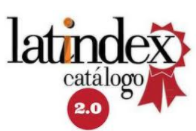The avoiding and never implemented regional democratization in Chile
DOI:
https://doi.org/10.35305/cc.vi125.57Keywords:
Chile, decentralization, gradualism, cooptation, presidentialismAbstract
The present article seeks to explain why Chile has been so reticent to the democratic election with levels of autonomy of the intermediate level of government called regional government, today in charge of an intendente delegate of the Central Government although from the 2014 with an elected regional council. Chile is the only case in the great democracies of Latin America, in opossition a traditional democratic power whithin traditional federal countries (Mexico, Argentina, Brazil, Venezuela), Colombia from 1992 and since 2000 have joined to choose the macro territorial executive Peru, Paraguay , Ecuador and Bolivia. The reason is the naturalization of the "presicratic" model of presidentialism with centralism dating back to 1830. Finally, the paper explains the rise of regionalist protests and the projects emanating from the Presidential Commission for Decentralization that Bachelet created in 2014, generating an incremental dual model that is debated in Congress. Chile lives a tension between the conservative right allied with the centralist left that resist a change of political system against the left center that seeks to deepen democracy allied to Christian Democracy and liberal segments.
Downloads
Downloads
Published
How to Cite
Issue
Section
License

This work is licensed under a Creative Commons Attribution-ShareAlike 4.0 International License.
Aquellos autores/as que tengan publicaciones con esta revista, aceptan los términos siguientes:
- Los autores/as conservarán sus derechos de autor y garantizarán a la revista el derecho de primera publicación de su obra, el cuál estará simultáneamente sujeto a la Licencia Creative Commons Reconocimiento-NoComercial-CompartirIgual 4.0.
- Los autores/as podrán adoptar otros acuerdos de licencia no exclusiva de distribución de la versión de la obra publicada (p. ej.: depositarla en un archivo telemático institucional o publicarla en un volumen monográfico) siempre que se indique la publicación inicial en esta revista.
- Se permite y recomienda a los autores/as difundir su obra a través de Internet (p. ej.: en archivos telemáticos institucionales o en su página web) antes y durante el proceso de envío, lo cual puede producir intercambios interesantes y aumentar las citas de la obra publicada.
















